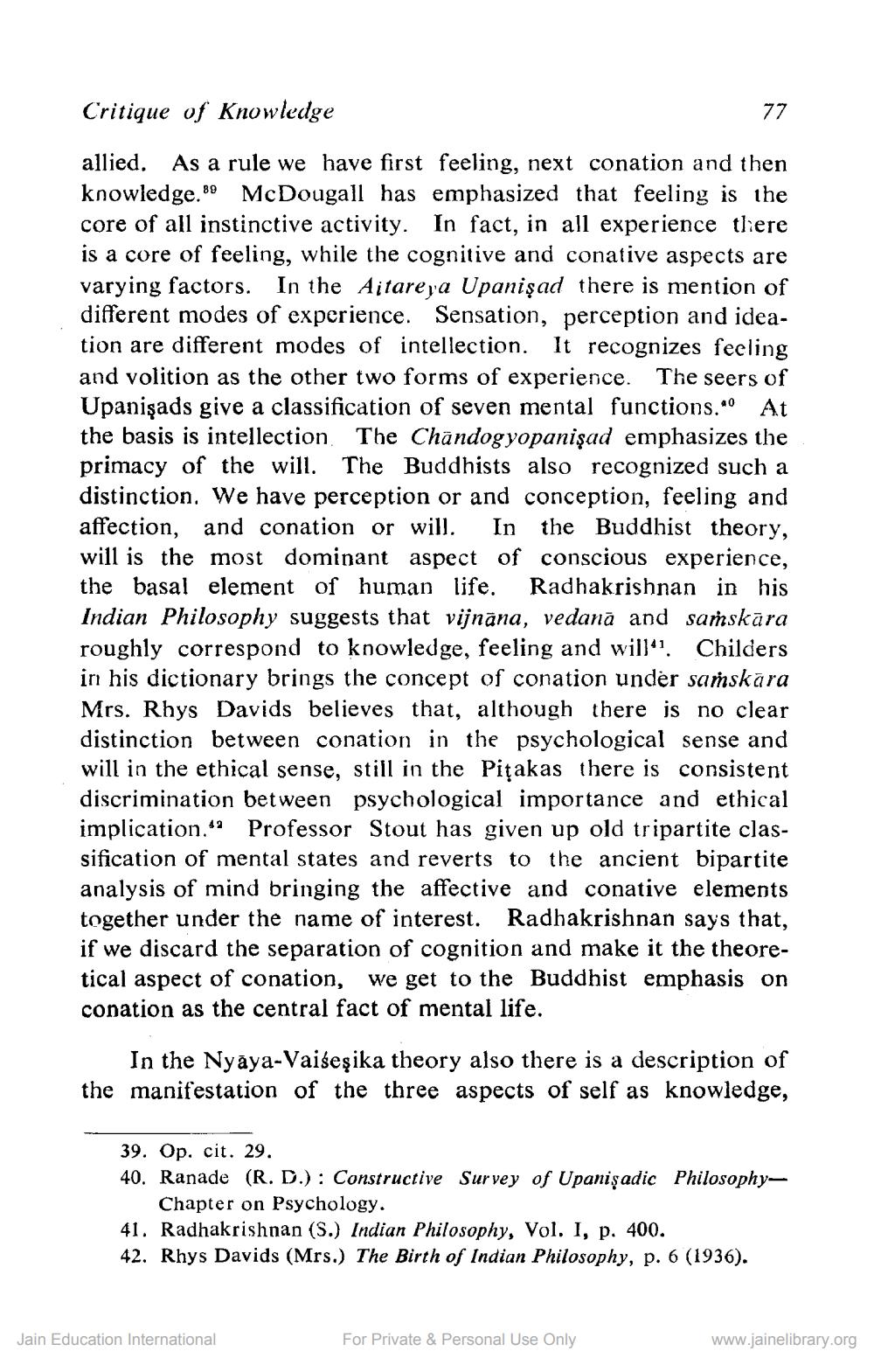________________
Critique of Knowledge
77
allied. As a rule we have first feeling, next conation and then knowledge. 89 McDougall has emphasized that feeling is the core of all instinctive activity. In fact, in all experience there is a core of feeling, while the cognitive and conative aspects are varying factors. In the Aitareya Upanişad there is mention of different modes of experience. Sensation, perception and ideation are different modes of intellection. It recognizes feeling and volition as the other two forms of experience. The seers of Upanişads give a classification of seven mental functions. At the basis is intellection The Chandog yopanişad emphasizes the primacy of the will. The Buddhists also recognized such a distinction. We have perception or and conception, feeling and affection, and conation or will. In the Buddhist theory, will is the most dominant aspect of conscious experience, the basal element of human life. Radhakrishnan in his Indian Philosophy suggests that vijnana, vedanā and saṁskāra roughly correspond to knowledge, feeling and will". Childers in his dictionary brings the concept of conation under saṁskara Mrs. Rhys Davids believes that, although there is no clear distinction between conation in the psychological sense and will in the ethical sense, still in the Pițakas there is consistent discrimination between psychological importance and ethical implication.“ Professor Stout has given up old tripartite classification of mental states and reverts to the ancient bipartite analysis of mind bringing the affective and conative elements together under the name of interest. Radhakrishnan says that, if we discard the separation of cognition and make it the theoretical aspect of conation, we get to the Buddhist emphas conation as the central fact of mental life.
In the Nyāya-Vaišeşika theory also there is a description of the manifestation of the three aspects of self as knowledge,
39. Op. cit. 29. 40. Ranade (R. D.): Constructive Survey of Upanişadic Philosophy
Chapter on Psychology. 41. Radhakrishnan (S.) Indian Philosophy, Vol. I, p. 400. 42. Rhys Davids (Mrs.) The Birth of Indian Philosophy, p. 6 (1936).
Jain Education International
For Private & Personal Use Only
www.jainelibrary.org




